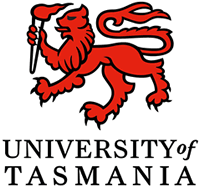About the research project
Urgent, deep and sustained cuts to global greenhouse gas emissions are needed if catastrophic events associated with anthropogenic climate change are to be averted. To help address the climate crisis, the Australian red meat sector has set the ambitious aspiration of achieving a carbon-neutral (net zero) livestock sector by 2030 (CN30 Initiative). The PROACTIVE PhD project will develop holistic farm systems interventions that are productive, profitable, sustainable and socially responsible, allowing positive progress towards CN30.
The project scope is flexible, however work conducted may include:
- Surveys and interviews with farmers in Tasmania and beyond to gauge perceptions on interventions for mitigating farm greenhouse gas emissions, including practical barriers to adoption.
- Farm level case studies conducted in part by modelling changes in GHG emissions in response to emissions 'stacking' i.e. combining multiple interventions allowing transformational but socially-acceptable GHG emissions abatement, together with improvements in long term profitability, sustainability, productivity
- Development of emissions abatement trajectories for Australian livestock farms, with a focus on sheep, beef and dairy systems. Interventions may be categorised into:
- Agronomic management
- Environmental stewardship
- Economic innovations
- Social
- Cultural themes
- Industry views of Emissions Reduction Fund (ERF) and Climate Solutions Fund (CSF) methods, with emphasis on likelihood of adoption, gathered through workshops
- Systems modelling and quantification of factors influencing GHG emissions (carbon sequestration/stocks in trees and in soils, soil fertility improvement, pasture renovation, feeding of low-emissions supplements such as red algae (Asparagopsis), breeding low methane cattle, rumen modification, early life programming etc)
- On farm experiments may be conducted, depending on interests of the candidate
Applicants are encouraged to view this webinar before applying: https://www.youtube.com/watch?v=jnNNfFbY7Nw
Funding
The successful applicant will receive a scholarship which provides:
- a living allowance stipend funded by Sustainable pathways to CN30 of $28,854 per annum (2022 rate, indexed annually) for 3.5 years
- a tuition fees offset covering the cost of tuition fees for up to four years (domestic applicants only)
International applicants will receive a University of Tasmania Fees Offset for up to four years.
Eligibility
Applicants should review the Higher Degree by Research minimum entry requirements.
Additional essential eligibility criteria specific to this project:
- Applicant must have a valid drivers licence and be willing to undertake domestic travel
- Applicants MUST have fundamental knowledge or experience in agriculture
Selection Criteria
The project is competitively assessed and awarded. Selection is based on academic merit and suitability to the project as determined by the College.
Application process
There is a three-step application process:
- Select your project, and check you meet the eligibility and selection criteria;
- Contact the Primary Supervisor, A/Prof Matthew Harrison, to discuss your suitability and the project requirements; and
- Click here to submit an application by the closing date listed above.
- Copy and paste the title of the project from this advertisement into your application. If you don’t correctly do this your application may be rejected.
- As part of your application you will be required to submit a covering letter, a CV including contact details of two referees and your project research proposal.
Following the application closing date applications will be assessed within the College. Applicants should expect to receive notification of the outcome by email.

 Continue with Facebook
Continue with Facebook



